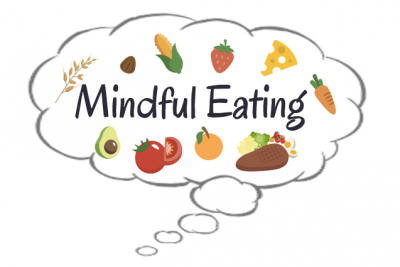पथ्येसतिगदार्तस्यकिमौषधनिषेव्णे!
पथ्येअसतिगदार्तस्यकिमौषधनिषेव्णे!!!
When diet is correct, medicine is of no need.
When diet is wrong, medicine is of no use.
Old Ayurveda Proverb
Modern nutrition has evolved into an obsession with what we eat. While important, the healthiest food in the world loses all of its goodness if we wolf it down while we’re agitated, driving, still full of lunch, or eating at midnight. This is the teaching of Ayurveda in a mindful eating philosophy called upayoga samstha.
Upayoga samstha is essentially a guideline for how to eat. We’ve heard most of its recommendations before; we all know that we should chew our food thoroughly, for example. But we might not realize just how important mindful eating really is. Making simple, conscious changes in the way that we ingest can improve digestion, prevent overeating and toxic buildup, and even settle the mind. Ayurveda teaches us how.
Eat warm food.
In Ayurveda we understand that digestion is dependent on the state of our digestive fire, or Agni. This is not a literal fire, but it does carry out processes of transformation and is considered to be hot, just like fire.
If we consume cold food or drink, we snuff or dampen the fire and reduce our power of digestion. Hence, Ayurveda recommends eating food warm. This means avoiding food straight from the fridge, ice cubes, and cold drinks. Hot summer days are the exception, when cool food and drink may be just what we need.
Eat food that’s freshly cooked.
When Ayurveda first came to be (thousands of years ago), there was no such thing as refrigerators. Food would have always been consumed fresh. Electricity has changed everything — now we can store cooked food for over a week!
However, leftover or old food lacks prana: the life force that gives us our vitality. Once a food has been cooked and stored, its prana gradually lessens and its quality changes. It also becomes heavy to digest. For these reasons, Ayurveda always recommends eating freshly cooked food. Leftovers are best avoided but should definitely be eaten within 24 hours.
Eat food in the right quantity.
There is no set quantity of food or water that’s right for everyone. We all have different digestive power, body types, and levels of activity. That being said, Ayurveda recommends that we fill our belly half with food. This means eating to a place of contentment but not extreme fullness. The third quarter is for liquids and the last quarter is to be left empty for digestive action.
Chew thoroughly and eat at a moderate pace.
Since the stomach doesn’t have teeth, we can support the digestive process by chewing thoroughly. This practice alone can reduce heaviness and bloating after eating. And so, can eating at a moderate pace: not too slowly, not too quickly, but somewhere in between.
Give a break in between meals.
Eating too soon after a meal means that the body can’t digest the first meal properly. A good rule of thumb is to wait three hours after eating until eating again. Grazing sets us up for imbalances but having a snack when there are more than three hours between meals is generally fine.
Bring rhythm to mealtimes.
Ayurveda emphasizes routine, especially when it comes to eating. When we’re on a mealtime schedule, the body knows when to expect food and secretes digestive enzymes to prepare. Eating around the same time each day supports this physiological function while eating at haphazard times puts a strain on digestion.
Eat when you’re hungry.
And don’t eat when you’re not. Hunger is a good thing; it shows that the body is ready to digest. Eating when we lack appetite, however, can make us feel heavy and weighted.
If you’re upset, wait to eat.
If we can’t digest our emotions, we won’t be able to digest our food. Never eat (or cook!) while upset or angry. Ayurveda teaches that once consumed, food can turn into toxins if the mind is in a negative space.
Eat in a peaceful atmosphere.
Our environment alters how our food is received. An unsettled, rushed, or chaotic environment puts our mind in a similar state. We’re likely to eat more quickly and end up with gas, bloating, or feeling agitated.
Always sit down to eat.
If we’re not sitting down to eat, our attention and energy are likely being diverted elsewhere. Sitting down and giving attention to food honors eating as a time to feed body, mind, and soul rather than as a mindless session of refueling.
Give food your full attention.
Focusing on our plate promotes mindful eating: chewing thoroughly, eating at a moderate pace, and knowing how much is enough. When we give food our full attention, it even tastes better, and we feel satiated with the proper amount of food.
Sit for a few minutes after each meal.
We can take cues from Europeans and linger at the table for at least a few minutes after eating. This allows the body to give its full attention to digestion before moving on to the next activity.
Good health begins with good digestion. While it does matter what we eat, it’s how we eat that ultimately determines the wholesomeness of our food. As always, Ayurveda guides us in the right direction.
Stay Tuned Next Week – With Bliss!
Tags: Ayurveda Eat Warm Food










